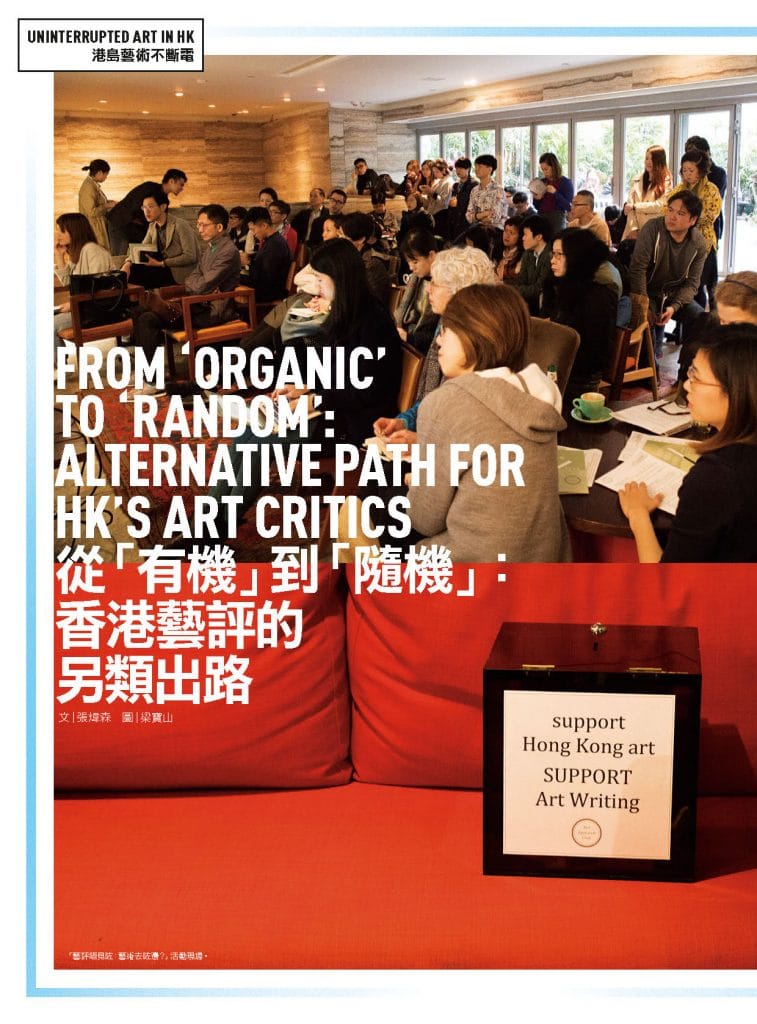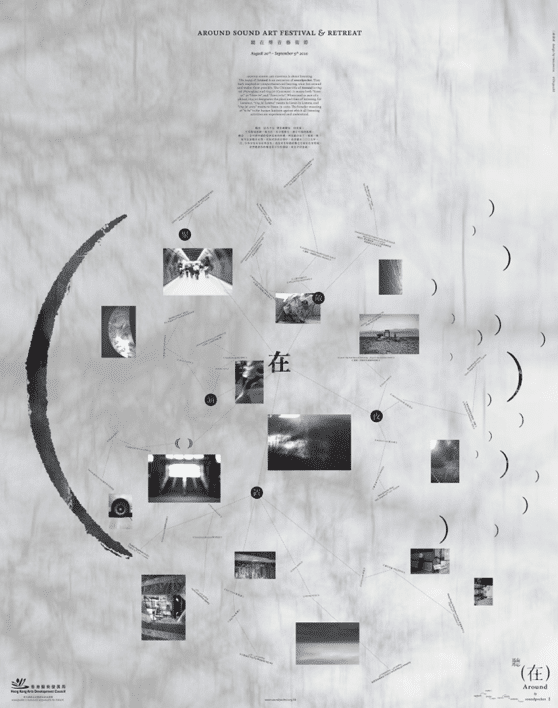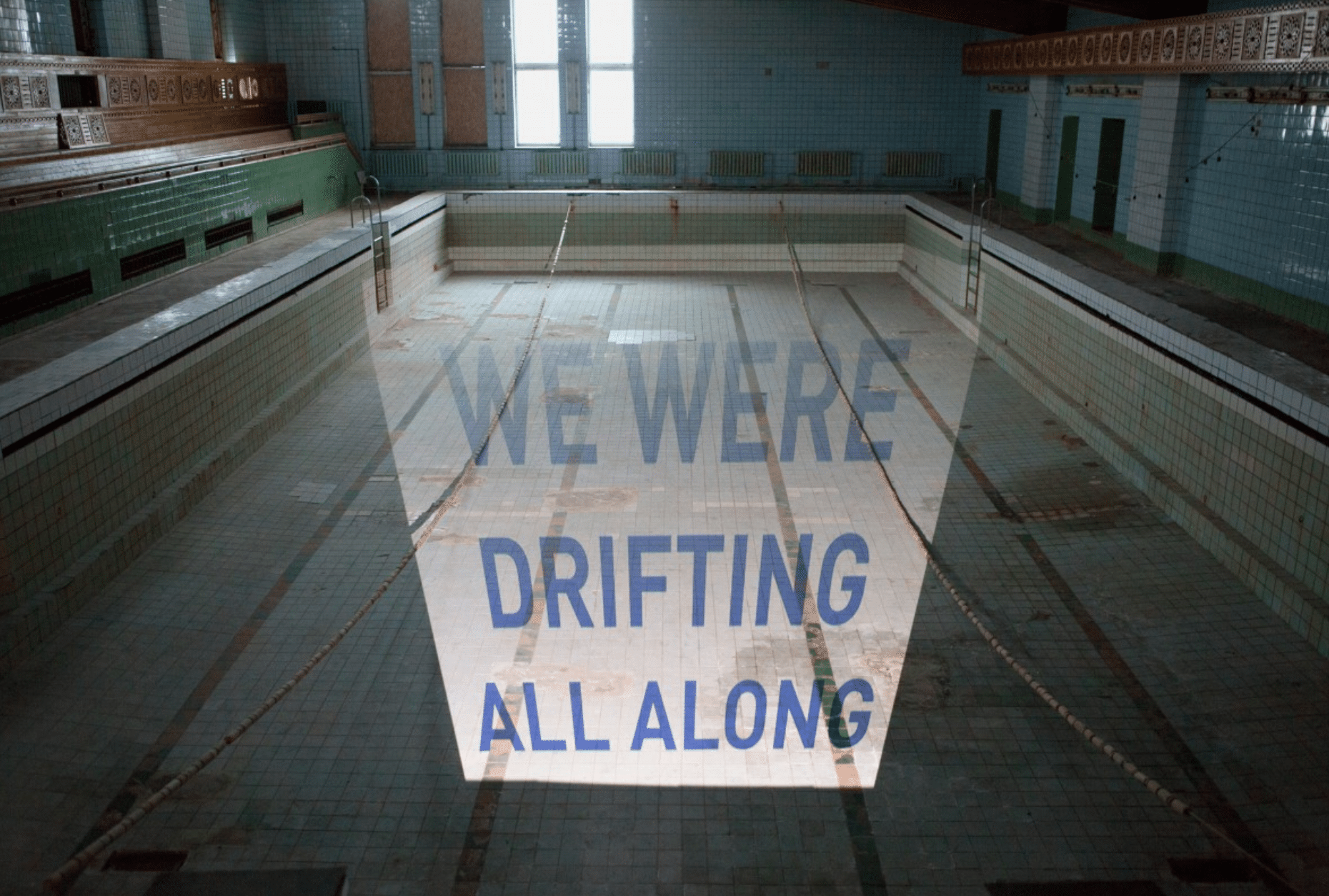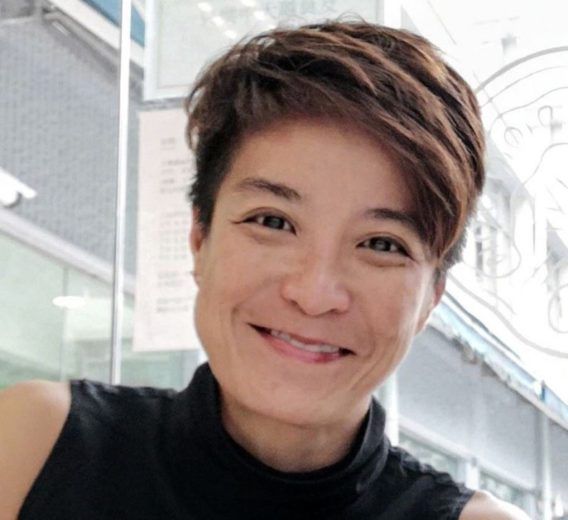I see what you mean, but my experience has been a little different. Let me respond to this on the level of soundpocket's work and as an individual practitioner. At soundpocket, we support a way of making art (ie. by sonic means and as inspired and determined by listening) that has only begun to take shape. I would say there is yet to be a community, but there are more individual artists who carry a practice that includes the thinking of sound and listening. There is a long way to go. soundpocket has never prioritised sound and listening in the sense of isolating them from other materials, form, or concepts. It's always about connecting, and how to connect. The aspiration here, in encouraging artistic practice, has little to do with 'local' or 'international'. These categories don't describe much of what artists do - they describe a context of a certain politics and economics, but not yet the art. They may become relevant one day, but as far as I can see, not yet. What's more important is to articulate the subjectivity from which each work/ gesture/ iteration manifests itself. Each artist is a little (or a lot) different, which the categories of 'local' and 'international' can barely address. As an organization though, we support artists who, as individuals, may find it hard to connect outside of their localities (due to multiple reasons). From day 1, I was driven by the idea that I would bring artists who will inspire those in Hong Kong here, and I'll try to set up structures to support the mobility of Hong Kong artists to encounter what they won't have to chance to in Hong Kong. It wasn't until quite recently, when I was in the UNESCO workshop, that I realize 'artist mobility' is a core component in upholding the freedom of cultural expression. So here, again, it's not about 'local' or 'international' as sensibilities; it's about bringing likeminded people together, at a particular place and time, which is open to receive the art the artists want to make. soundpocket didn't have an ambition to be 'international' if that means recognition of some kind (and I don't even know how to talk about this as other than 'talk of the town', or 'fame', or whatever). We do have the ambition of seeking out artists who would inspire each other. At the early stage of our inception, a German artist came visit us and said, there were probably around 30 organisations like soundpocket in the whole world. We are small islands, and we connect with each other. I always think of Foucault saying that in civilizations without boats, dreams dry out. Of course it doesn't have to be literal - land-locked places are rich with dreams as much as those close to the sea. The point I think is to think of each other as human beings having the capacity for understanding each other, as whole human beings, not just as a practitioner here, a professional there, as if we could only think of ourselves as components of a market of division of labor. On the individual level, I'd like to share this little excerpt from Vaclav Havel when he was asked about the worldwide literary success of Milan Kundera. "I personally like Kundera's book, and that has nothing to do with how many copies were sold. And anyway, isn't this continuing fear of being out of step with the world a clear sign of provincialism?" (from "The Politics of Hope" in Disturbing the Peace, by Havel). It's a particularly succinct remark - I recall having been involved in protests related to art, that have been criticised as being 'provincial' for missing out on the 'bigger picture'. At the time, in context, it was about making Hong Kong visible internationally, and evaluated alongside other 'first world' countries (such a dated term, but yes, it was, and perhaps still is, in the imagination of power today). Havel's comment is such an important reminder about the harm of self-victimisation and the limits of thinking in those terms. Lastly, as member of the Art Appraisal Club, I would say - speaking for myself only - that we come together because we believe Hong Kong artists need critical attention not only because "Hong Kong" has been under-recognised, but there is the potential of 'competing universality' (Judith Butler's idea) in their concerns. It's not about the economy of attention (as in the local and international), but in doing our best to make a case for things to be connected, as they are always already.









